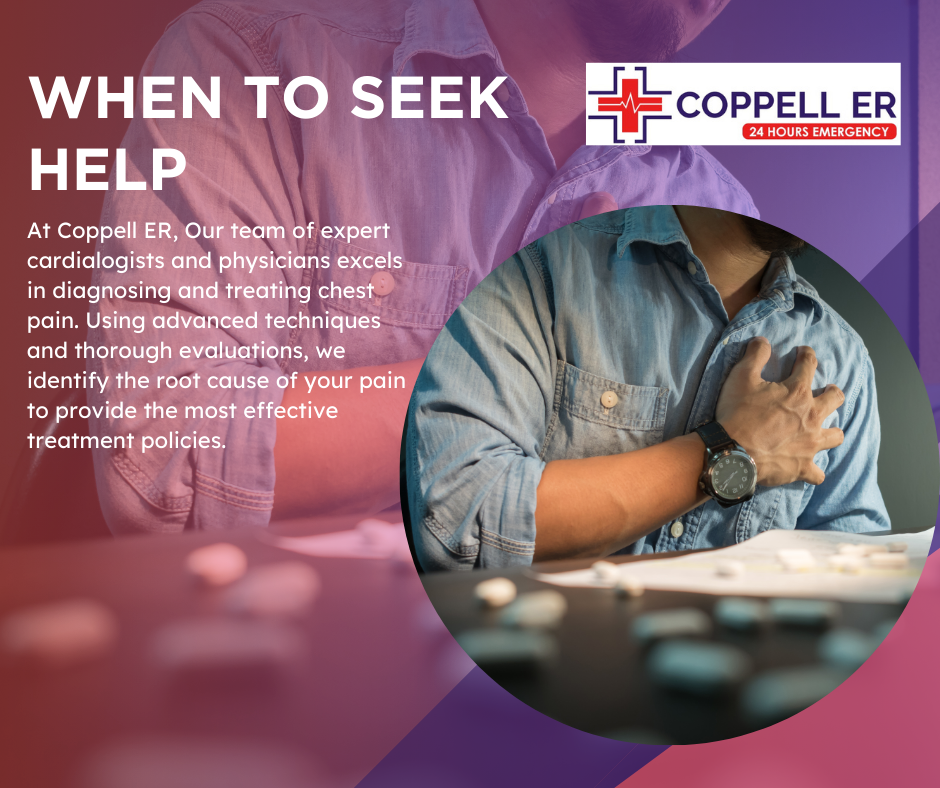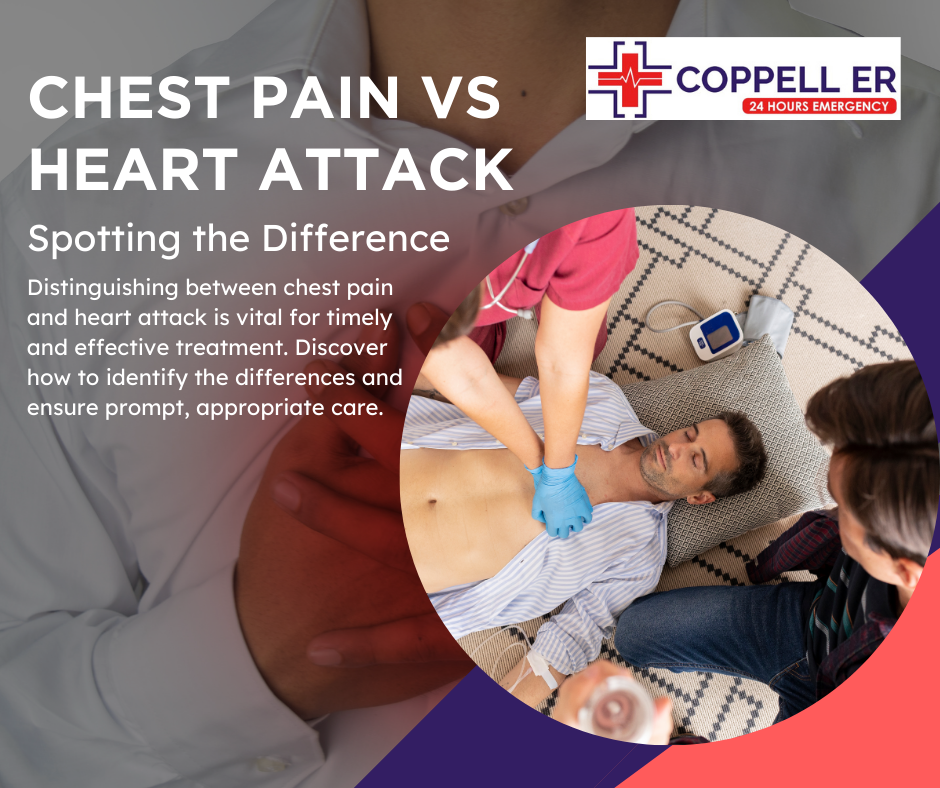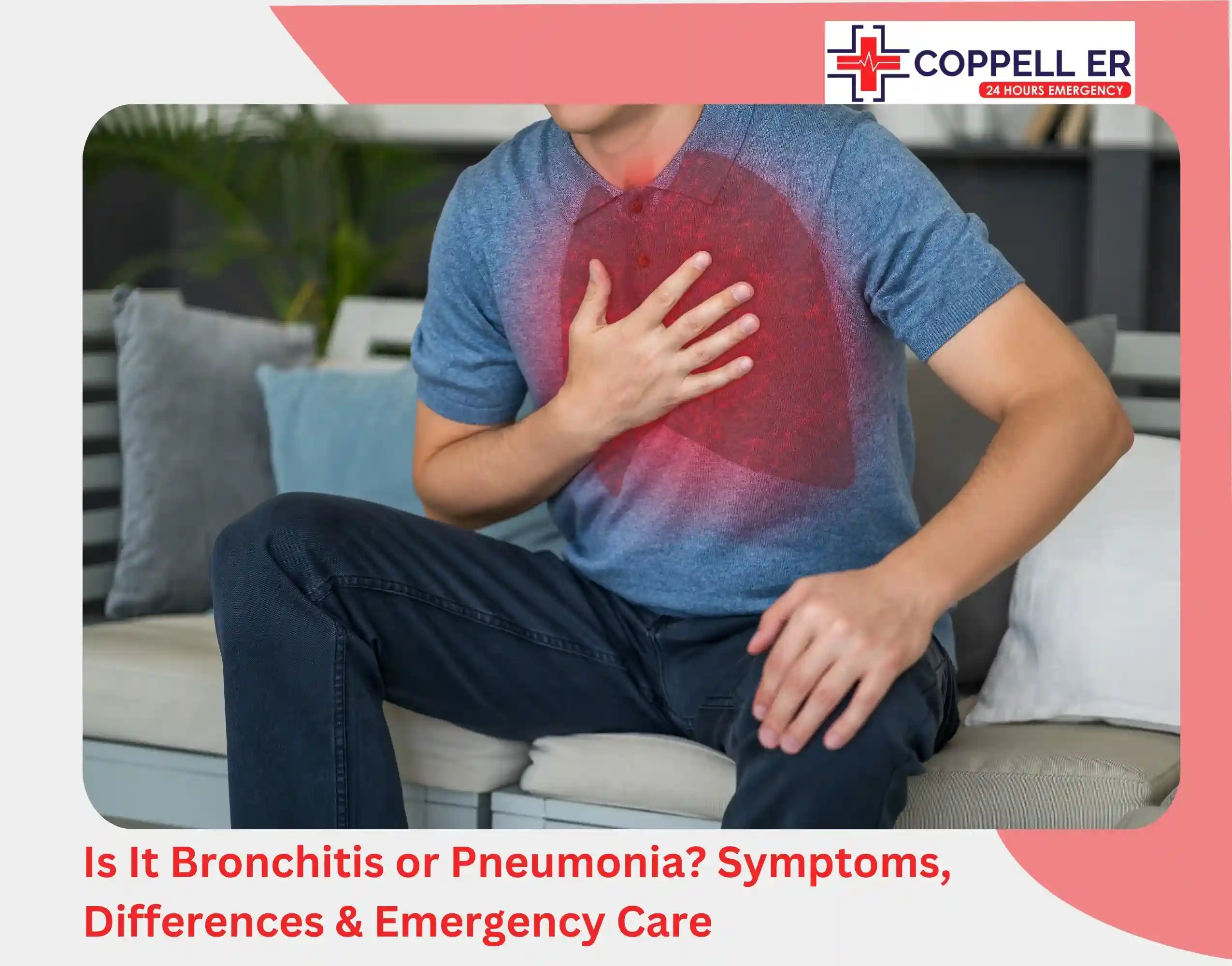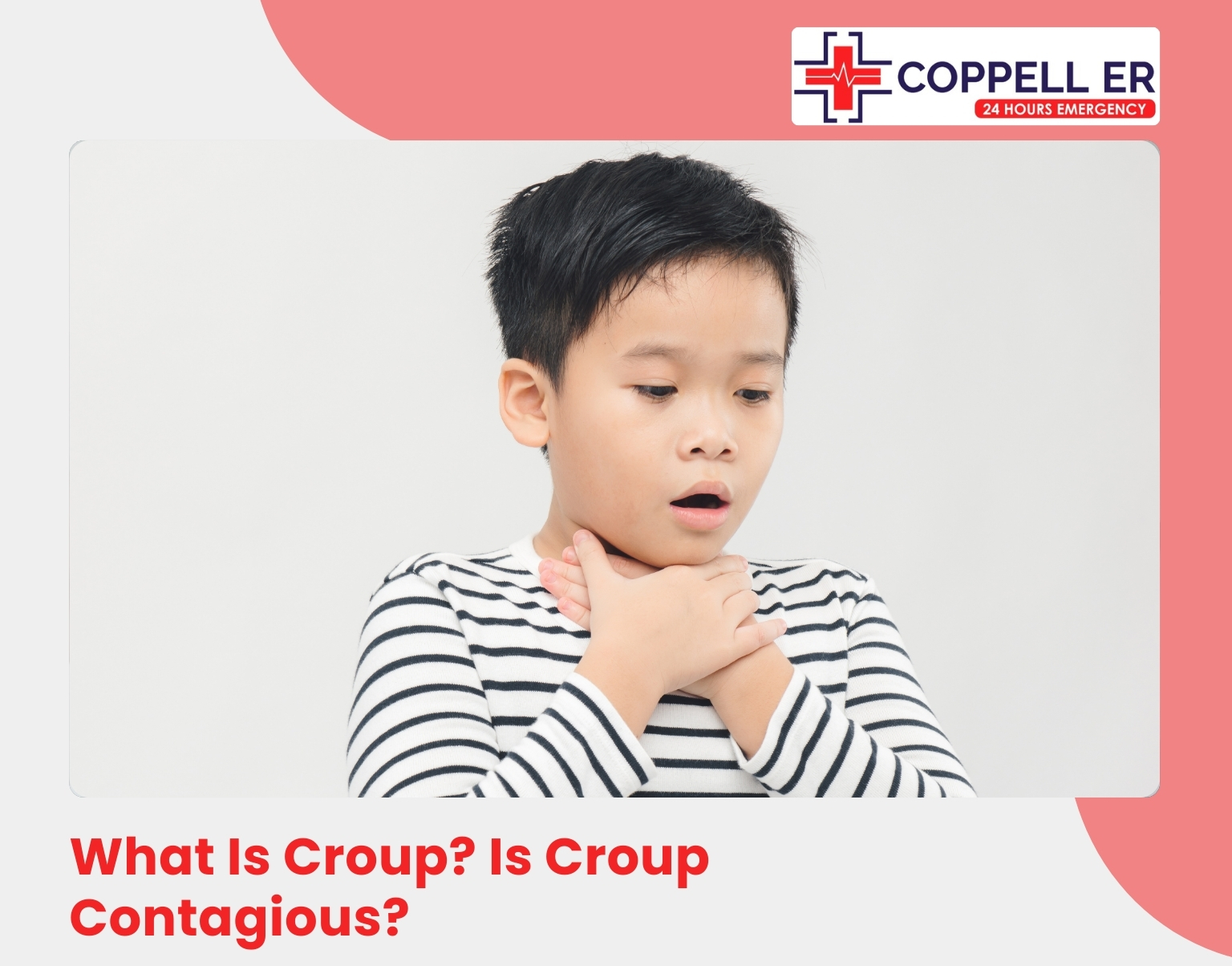Chest Pain vs Heart Attack: When Should You Worry?
When should you worry about chest pain vs Heart Pain? That persistent, dull burning sensation in your chest isn’t fading and seems to be worsening. Could it be a heart attack, or something else entirely?
Millions of Americans visit hospital emergency departments each year due to chest pain, often related to heart attack or unstable angina—critical cardiac symptoms indicating potential cardiac distress and underlying heart disease. However, only 20% are diagnosed with a heart attack or unstable angina, which signals a potential imminent heart attack.
Understanding chest pain vs heart attack is crucial, as unexplained chest pain doesn’t always signify a heart attack, it should never be ignored. In this guide, we emphasize the importance of heart health and understanding heart disease, highlighting the criticality of recognizing heart attack warning signs and knowing when to take action to potentially save lives.
| Visit Coppell ER for the best cardiologist in Coppell, TX. We prioritize minimizing wait times and immediate access to emergency care when every second counts. |
Symptoms of a Heart Attack
chest pain vs Heart attack both are related and manifests in several ways, including as a painful pinching sensation, pressure, fullness, tightness, burning, or discomfort in the middle of the chest.
Furthermore, it’s critical to understand that there are other heart attack symptoms besides chest discomfort. Therefore, people experiencing chest pain should also watch out for the following additional signs:
- Pain, pinching, numbness, tingling, or other uncomfortable sensations in either or both arms, the neck, back, stomach, or jaw
- Chest pain on the left side or right side
- Difficulty breathing
- Chest pain when breathing
- Feeling faint or dizzy
- Unexpected vomiting or nausea
- Unusual tiredness
- Sudden weakness, heaviness, or aching in either or both arms
- Cold perspiration or flushing
Not all heart attacks involve chest pain, so seek emergency care if you experience any unusual symptoms. Be aware that chest pain when breathing, anxiety chest pain, and chest muscle pain could also indicate serious issues.
Understanding the source of your chest pain can be crucial for proper diagnosis and treatment. For instance, distinguishing between cardiac arrest vs heart attack or recognizing chest pain vs heart attack can be life-saving. If you’re ever unsure about your symptoms, don’t hesitate to seek medical attention.
| Evaluate Your Chest Pain Symptoms Now |
Chest Pain vs Heart Attack
As mentioned earlier, there are many ways to describe chest pain. Let’s discuss the differences between chest pain resulting from a heart attack and discomfort in the chest muscles caused by other conditions.
What It Feels Like
chest pain vs Heart attack-related frequently feels like a lot of pressure, tightness, burning, or squeezing in the chest. In contrast, chest muscle pain typically feels sharp or knife-like, especially after coughing or inhaling deeply.
How It Starts
Heart attack pain usually begins suddenly and intensely, feeling like heavy pressure or tightness in the chest. In contrast, chest pain vs heart attack tends to develop gradually, feeling sharp or stabbing and often triggered by specific movements or breathing.
Where the Pain Occurs
Chest pain vs heart attack typically spreads across a broad area, often in the center of the chest. Pain that is more localized to one side of the body, such as left side chest pain or right side chest pain, is less likely to indicate a heart attack. Moreover, pain confined to a small, specific spot usually has a different cause, as a heart attack often causes pain that radiates to the left arm, jaw, neck, or back.
Duration of Pain
If you experience chest pain vs heart attack that persists for several days without any other symptoms, it is likely not caused by a heart attack; however, if the pain is accompanied by other symptoms, such as shortness of breath or nausea, it could indicate a heart attack, including a widow maker heart attack, which involves a severe blockage in the left main artery of the heart.
When To Seek Help

If your chest pain persists or worsens, go to the nearest cardiac care center immediately. Urgent medical attention is necessary for certain diseases that might cause chest pain, even if it is not connected to a heart attack.
At Coppell ER, our team of expert cardiologists and physicians excels in diagnosing and treating chest pain. Using advanced techniques and thorough evaluations, we identify the root cause of your pain to provide the most effective treatment possible.
FAQs
How do I know if my chest pain is a heart attack?
To know if your chest pain is a heart attack, check for signs like intense pressure, tightness, or squeezing in your chest, along with shortness of breath, nausea, or pain radiating to your arm, jaw, neck, or back. If you notice these symptoms, seek emergency medical help.
Can chest pain go away on its own?
Sometimes, chest pain can resolve without intervention, especially if it arises from minor causes like muscle strain or indigestion. However, we don’t advise taking any chances with severe and persistent chest pain.
How can I test myself for a heart attack?
Look for signs like severe chest pressure, tightness, or squeezing, and pain that spreads to your arm, jaw, neck, or back. Be aware of additional symptoms such as difficulty breathing, nausea, or sweating. If these symptoms occur, see a cardiologist immediately.




